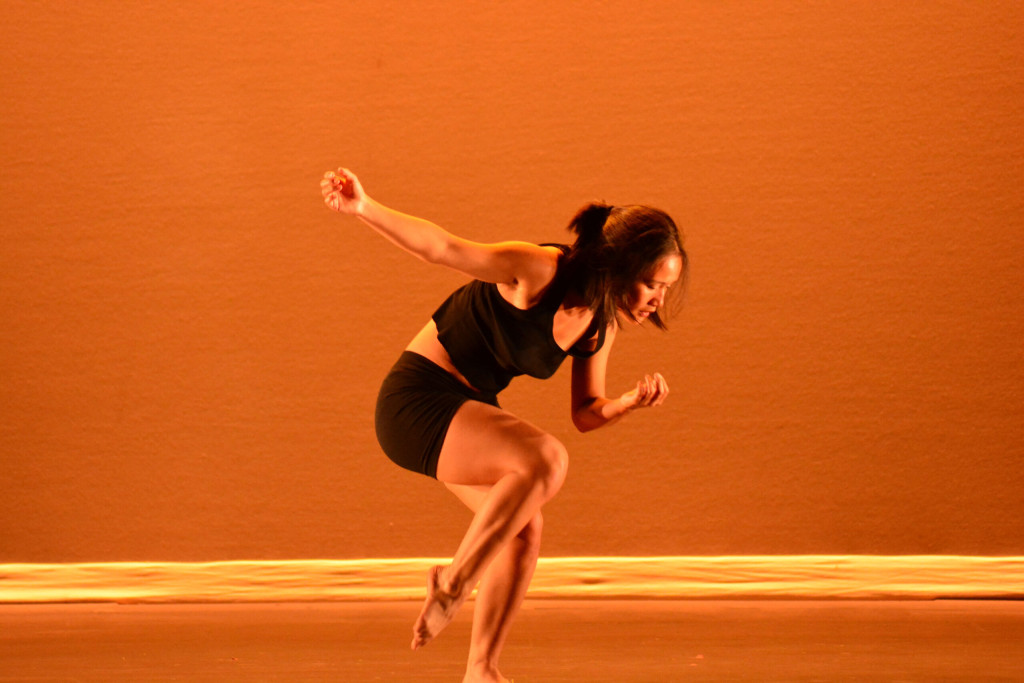One word echoed throughout the performances of Our Monologues: “amalgamation.” Amalgamation was not only heard, but also seen: an amalgamation of voices, ideas, and identities appeared onstage, a multicultural melange of stories that left audiences laughing and crying. The production, formerly known as the Vagina Monologues and then changed to Our Monologues, beautifully delivered its message to the Berkeley High School (BHS) community at Shotgun Players and the BHS Little Theater during the week of April 11.
The show’s co-directors, Anna Pelegrino and Riya Jivan, managed to not only put on a powerful performance, but also win the admiration of the entire cast. Both had begun their journey with Our Monologues in last year’s production, which was streamed online. When asked to run the show in 2022, both were ready for the job.
“This show, we say it’s a healing process,” Pelegrino explained. “It’s not just entertainment, it’s a big role to take on all of these stories that are very vulnerable. Some are traumatic, some joyful, you know we have this responsibility to do them justice.”
“Healing process” is the perfect description of a performance such as Our Monologues. It was intense, and the content warnings provided in the program were a thoughtful choice.
The “Our” in Our Monologues is of utmost importance for Jivan. “These stories aren’t just about us, they’re about the entire community,” she said. “We want [the audience] to feel represented.”
“Through this we’ve been able to see how much is going on in people’s lives and how much more they’re willing to share when it feels like a really safe space, which it is,” Pelegrino added.

The acts included spoken word, singing, and dance. One monologue in particular seemed to strike a chord with those in attendance. Performed by Hanim Nuru and written by Pelegrino, “Hella” was a piece on code-switching in the academic world and what that means for people in the Bay Area. The monologue explained how the word “hella” holds cultural significance in our community, yet is not acceptable in a classroom setting. Pelegrino wrote with passion and strength, and Nuru’s delivery was a perfect accompaniment. Murmurs of understanding were heard bouncing off the walls of both venues.
Throughout the entire process of production, one of the directors’ main priorities was the cast’s mental health. “Anna and= Riya were really good about making sure we did check-ins every single day,” said cast member Shai Eastman. “The focus from the directors onto you and also like the support you’re getting from the cast was amazing.”
Although she had no prior experience in the performing arts, Eastman was welcomed into the production and found herself submersed within the adventure that is Our Monologues.
The youngest member of the cast was Arunima Stoller, who felt this protection and love just a little differently. “After my first monologue on opening night, I went backstage, and Anna and Riya just completely engulfed me in this big hug,” she said.
There was also a sense of continuity throughout the show. In one piece performed and written by Leyla Munist entitled “Altar,” an out-of-body unbelonging was described. She talked about looking at herself in the mirror, picking apart each and every part of her body and mind. This experience was depicted through a different lens in the monologue called “The Process” by Alex Scott, which narrated the perspective of someone dealing with the crippling standards for Black individuals in America.
The final shows were scheduled for April 19 and 20, which happened to fall at a time of tragedy for the BHS community. For this reason, the performances were indefinitely postponed, as posted on the social media accounts of participants.
A communal performance that left a lasting impression on anyone who watched it, Our Monologues was an impactful representation of the students of BHS.
“Anyone who wants to represent their story or somebody else’s should do it. It’s a vulnerable thing, putting yourself on stage and sharing your story, but it’s so worth it and so powerful,” said Pelegrino.





